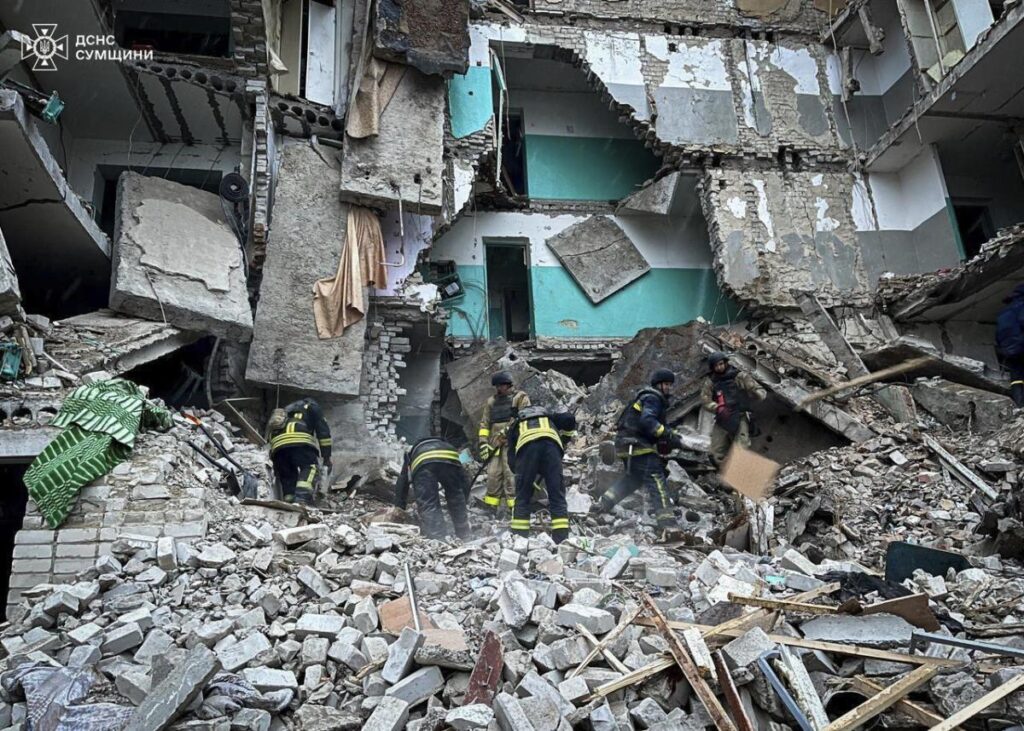In recent days, Ukraine has faced the most severe escalation of conflict since Russia’s invasion began nearly three years ago, driven by a series of pivotal decisions and military actions that have significantly changed the dynamics of the war. The United States, under President Joe Biden, made a controversial move by permitting Ukraine to utilize American longer-range missile systems against targets within Russian territory, a departure from earlier U.S. policy aimed at preventing broader conflict. This shift came in the wake of reports of North Korean troops supporting Russia, heightening tensions as the international community braced for potential consequences stemming from this new directive.
Following the U.S. announcement, the Kremlin responded with stern warnings, signaling that the deployment of Western weapons into Russian territory would lead to an escalation of hostilities. Dmitry Peskov, a spokesman for the Kremlin, characterized the U.S. decision as a provocateur action, suggesting that it would further inflame tensions in an already volatile situation. This exchange of heated rhetoric reflected the growing concerns regarding the potential for the conflict to spiral out of control, with both nations exchanging verbal jabs as they prepared for possible military engagement.
On the following day, Ukraine launched strikes utilizing the American ATACMS missiles for the first time, targeting an ammunition depot in Russia’s Bryansk region. This marked a significant development, as Ukrainian forces had previously refrained from launching attacks on Russian soil in such a direct manner. Concurrently, President Putin issued a grave warning regarding the potential use of nuclear weapons, officially signaling that Moscow could respond to any conventional attack by a force supported by nuclear powers, such as the U.S. This heightened the stakes of the conflict, as the introduction of nuclear rhetoric into the discourse added a disturbing layer of complexity to the ongoing war.
As tensions mounted, the U.S. took further steps to bolster Ukraine’s defense capabilities, now endorsing the provision of anti-personnel mines to slow down Russian advances. This change in policy was driven by a need to adapt to the evolving tactics employed by Russian forces, despite Biden’s earlier hesitation due to concerns about the humanitarian impact of such weapons. Ukraine also executed strikes using British Storm Shadow missiles, aggravating Moscow and showcasing a resolute determination to counter Russian aggression with allied support. In light of these developments, many Western embassies in Kyiv ordered temporary closures in anticipation of potential major Russian counterstrikes.
Thursday saw an important escalation, with Russia testing a newly developed intermediate-range ballistic missile in retaliation for Ukraine’s recent actions. President Putin touted the capabilities of this advanced missile, warning that it could evade U.S. defense systems, thereby increasing fear over potential attacks on both Ukraine and its allies. The missile, named Oreshnik, demonstrated Russia’s intent to leverage cutting-edge military advancements in its ongoing conflict, raising the alarm bells in NATO and prompting discussions on the implications of this technological escalation.
In the wake of these developments, NATO convened an emergency meeting due to the urgency of the situation, seeking to assess and respond to the changing landscape of the war. The potential for significant violence loomed over Ukrainian lawmakers, prompting the cancellation of parliamentary sessions amid looming threats of attacks on government buildings. As discussions unfolded at the international level, leaders such as Polish Prime Minister Donald Tusk emphasized the gravity of the conflict, noting that it was entering a decisive and dangerously dramatic phase, underscoring the critical juncture at which the war now stands. As both sides brace for further confrontation, the overarching sentiment is one of uncertainty, fear, and a rapidly escalating conflict that could have dire global repercussions.

